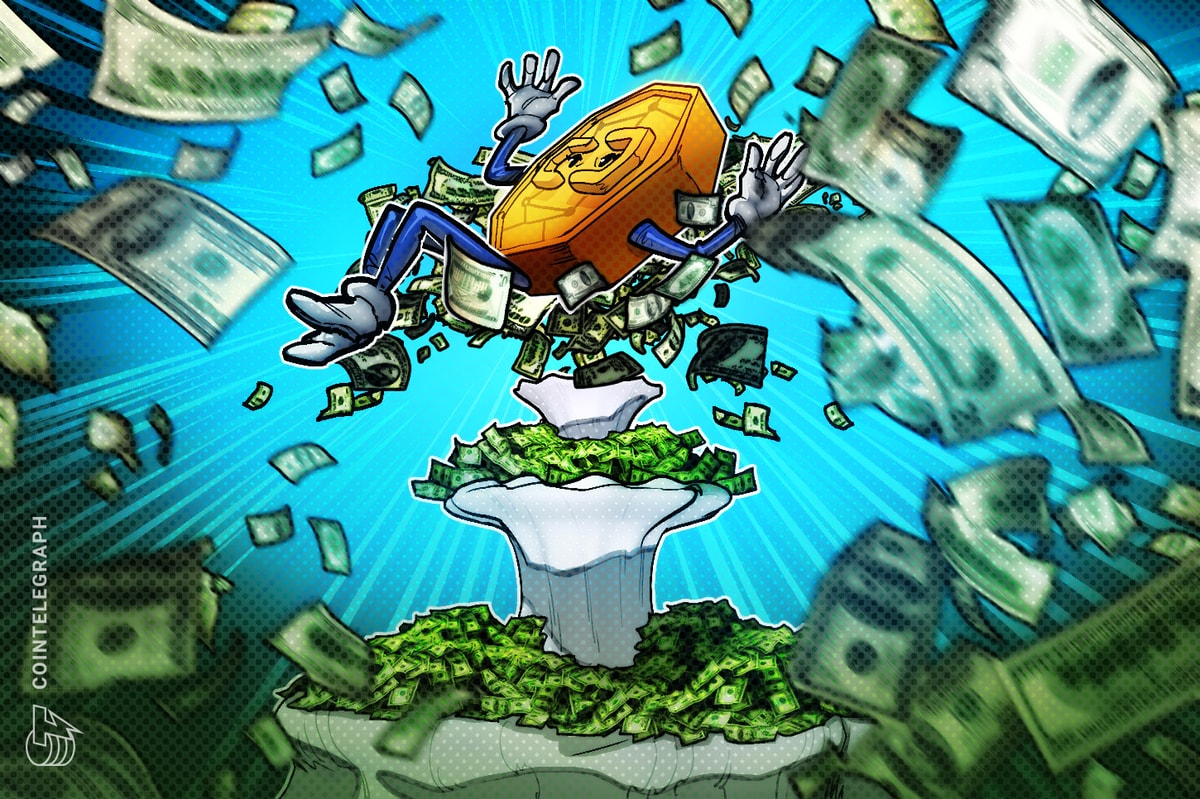This is the third and final part of our series “Beyond Currency.”
Part One: Bitcoin as a Disruptive Technology
Part Two: A Brief History of Disruptive Information Technology
It is conceivable that DApps for payments, data storage, bandwidth and cloud computing may one day surpass the valuation of multinational corporations like Visa, Dropbox, Comcast, and Amazon that are are currently active in the space.
- from The General Theory of Decentralized Applications
Some people have recognized the value of Bitcoin as a decentralized application, and they are working to apply its blockchain protocol to a number of systems outside of the realm of payments and currency. David A. Johnston (quoted above) is one such person, as are the developers at Ethereum:
Bitcoin as an application can be described as a first-to-file system: if one entity has 50 BTC, and simultaneously sends the same 50 BTC to A and to B, only the transaction that gets confirmed first will process. There is no intrinsic way of determining from two transactions which came earlier, and for decades this stymied the development of decentralized digital currency. Satoshi's blockchain was the first credible decentralized solution. And now, attention is rapidly starting to shift toward this second part of Bitcoin's technology, and how the blockchain concept can be used for more than just money.
- from the Ethereum white paper
This is a difficult concept for many people, especially as cryptocurrencies themselves are a relatively new idea. But consider the way most of people use the Internet: We have some combination of a machine on which we store files and cloud storage, and both rely on some level of trust in a third party (backups aside, I still currently have to trust the MacBook I’m typing on won’t crash, and that Amazon won’t distribute some vacation photos I have stored on Cloud Drive).
Bitcoin showed us that instead of trust, we could develop a network in which files are broken up and dispersed (just like your “Game of Thrones” torrents), and those chunks of files can be encrypted so that we hold our own private keys. Jeff Bezos wouldn’t be able to look at your files, nor would Mark Zuckerberg, nor would the US Customs Agents who have confiscated your laptop. This is part of what the people at MaidSafe are working on.
Other Applications
The Ethereum white paper lists a number of examples of potential decentralized applications we could see emerge. These include peer-to-peer gambling, decentralized data feeds and marketplaces that rely on a blockchain to prove the identities and reputations of both buyer and seller.
Besides Ethereum and MaidSafe, here are a few more projects involving DApps:
- StorJ: think Dropbox but backed by MaidSafe
- OpenGarden: Mesh network Internet
- Scallion: Create onion addresses for the Tor network
Who is Threatened?
A decentralized Internet is threatening to any big Internet service provider because commercial ISPs control and charge money for access to online content. With that control stripped away and given to individuals, companies such as Comcast would find one of their primary revenue generators obsolete.
The folks who are already fighting Net Neutrality have plenty of incentive to fight a decentralized Internet.
Then, consider what organizations benefit from their entrenched positions in data storage, bandwidth and cloud computing. These are the ones for whom decentralized apps will initially be existentially disruptive. These established players will fight this technology tooth and nail, and the fight could get ugly.
The Future of Decentralized Applications
We reached out to a couple of experts in the field to get their takes on the potential impact decentralized applications could have.
David Irvine, CEO MaidSafe:
I think [MaidSafe] will give everyone free access to the world’s data and data resources. This means education will flourish. The benefits of easier trade and communications between all the people of the world will allow us to move forward as a species in an inclusive manner.
I used to talk about this while raising investment. When asked about returns, I would answer that engineers can count, and we are creating something that will disrupt trillions of dollars of business, so financial returns should be simple. More importantly though is that if we give everyone free computing and somebody jumps from behind a bush in the developing world with a cure for cancer, let’s say, then what is the return? To me, this is what we can achieve with fair and inclusive systems.
Removing the requirement for humans to do work and replacing this by math is very obvious. Math is correct and repeatable, and there are not many equations that become greedy and corrupt. The simplification of complex systems is a never-ending job and one we should all welcome. I find corruption, greed, ego and ownership of systems to be a very dangerous issue and one that does lead to death, starvation and mistreatment of people.
From David Lio of CoinHeavy:
Let me begin by saying that I am just a guy who believes in the principles and technology of cryptocurrency. I work in the industry each day because it is simultaneously the most interesting field and the one with the greatest potential to change the world for the better. If folks are interested in what the future holds, I would recommend going directly to the source by listening to genius-level thought leaders like Stefan Molyneux, Vitalik Buterin and Andreas Antonopoulos. That being said, I am happy to paraphrase the most exciting ideas I have encountered and to speculate a bit myself.
The potential for decentralized applications is limitless. Johnston's Law holds that “Everything that can be decentralized, will be decentralized” (David A. Johnston). We have all of these crucial systems underpinning our economy and our society, systems that are intensely centralized and hierarchical, simply because until now we did not have the technology to implement them in any other manner.
One of the areas where the archaic nature of such centralization and hierarchy is already quite apparent is the financial industry. Clearly, most people do not feel that they are being financially served in proportion to the amount of their economy consumed and controlled by the financial services industry. As billions of unbanked people continue to leapfrog traditional network infrastructures — skipping wires for wireless — we should sincerely hope that they also leapfrog traditional financial systems — skipping banks for Bitcoin.
Currency, however, is just the first application of the technology behind Bitcoin. Now that a distributed ledger is possible, so too are exciting concepts like smart property and cryptofinance. Second-generation platforms like Ethereum will make possible decentralized exchanges, decentralized stock markets, and decentralized financial contracts as simple or as complex as anyone wishes to program. Once cryptofinance is a reality, every single industry and business will be affected. Traditional banking and financial overhead will become a competitive disadvantage as decentralized, low-to-no-fee, open source solutions emerge and evolve.
Another interesting decentralized application is distributed cloud storage. In this model, users can rent fully encrypted, massively decentralized cloud storage space. Alternatively, individuals can also provide storage to the network and earn the fees of those renting space via a process called “proof of resource.” Such novel decentralized applications mean new ways for people to enter the cryptocurrency economy. Mining bitcoin or other cryptocurrencies can be technically challenging. Connecting a computer with one or more hard drives to the Internet, however, is something most of us already do each day.
More significant than all of this, however, is the potential for the end of war. Stefan Molyneux recently gave the most important philosophical speech that has ever been given, in which he outlines how worldwide adoption of bitcoin would render war funding infeasible. I implore every person who values thought and truth and human life to seriously consider Stefan's ideas.
I would be a fool to speculate specific timeframes but I will say this: When I first read the Bitcoin whitepaper back in early 2011, I was fascinated. However, I dismissed the idea of cryptocurrency in the near term, expecting the time horizon for significant adoption to be on the order of 25+ years. Clearly, I was completely wrong. The world is ready for new solutions to money and finance not in some distant future, but now. And this is just the beginning.
We live in exponential times; it's a pleasure each day just trying to keep up.











